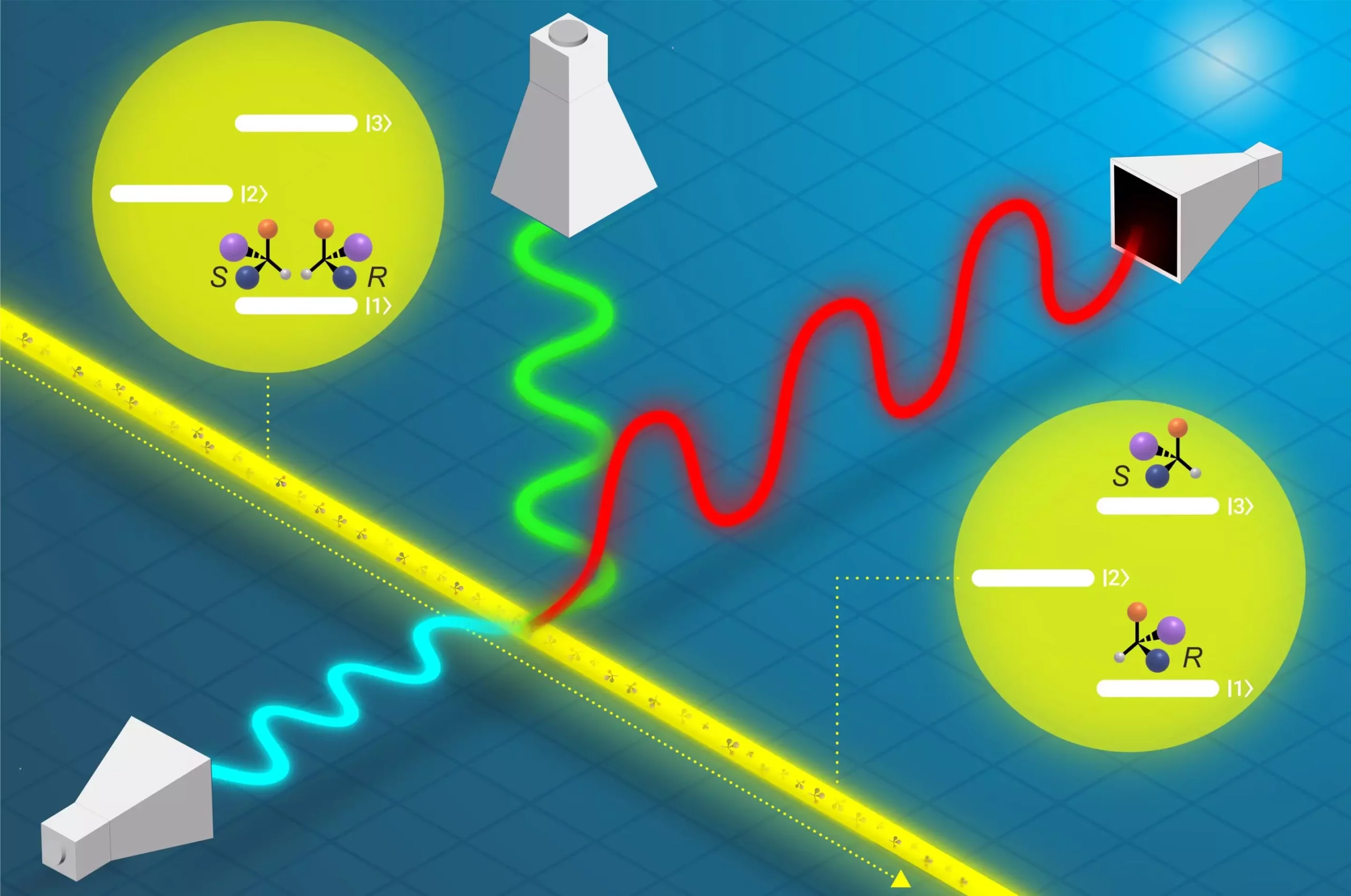

A recent study published in Nature Communications by the Controlled Molecules Group at the Fritz Haber Institute has brought about a significant advancement in the field of chiral molecules. Led by Dr. Sandra Eibenberger-Arias, the team achieved near-complete separation in quantum states for these essential components, challenging previous assumptions and opening up new research directions in molecular physics and beyond.
Chiral molecules, existing as two non-superimposable mirror image versions known as enantiomers, are fundamental to life. The ability to control these molecules and their quantum states has vast implications, from spatial separation of enantiomers to exploring the origins of life’s homochirality. The study challenges the belief that perfect control over these molecules’ quantum states was unattainable, showcasing a 96% purity in the quantum state of one enantiomer.
The team at the Fritz Haber Institute utilized tailored microwave fields combined with ultraviolet radiation to achieve the groundbreaking results. By creating optimal experimental conditions, they demonstrated the feasibility of nearly perfect selectivity in the quantum state of chiral molecules. The experiment involved a beam of molecules with suppressed rotational motions, cooled to a temperature close to absolute zero, passing through three interaction regions where it encountered resonant UV and microwave radiation.
The new experiment not only represents a significant advancement in molecular beam experiments but also opens up exciting possibilities for studying fundamental physics and chemistry effects involving chiral molecules. The team’s method provides a new avenue for exploring parity violation in chiral molecules, a phenomenon predicted by theory but not yet observed experimentally. This has the potential to enhance our understanding of the fundamental (a)symmetries of the universe.
The study on near-complete chiral selection in rotational quantum states by the Controlled Molecules Group marks a significant milestone in the field of molecular physics. This groundbreaking research not only challenges existing assumptions but also offers new opportunities for further exploration and potential applications in the realm of chiral molecules. The discovery of nearly complete, enantiomer-specific state transfer opens doors to a world of possibilities, promising exciting developments in molecular physics and beyond.
In the realm of software development, the ability to swiftly and accurately address bugs is…
The realm of quantum computing and communication is not just an abstract dream anymore; it…
In a remarkable leap for the field of material science, a collaborative research initiative has…
Throughout Earth's vast history, our planet has endured five major mass extinction events that reshaped…
Rainfall is a vital element of our planet’s hydrological cycle, yet many aspects of its…
On a night when the universe aligns, a mesmerizing phenomenon awaits: the appearance of the…
This website uses cookies.